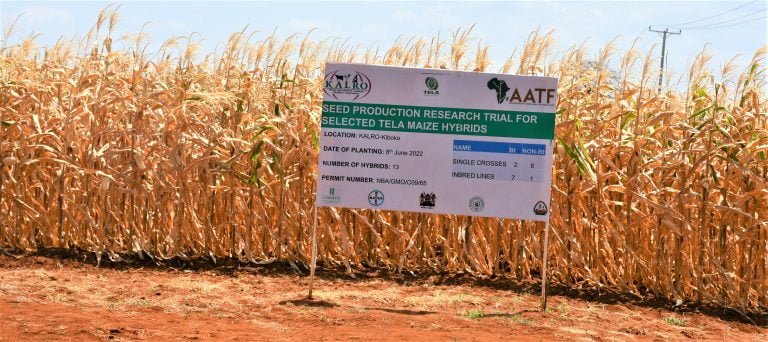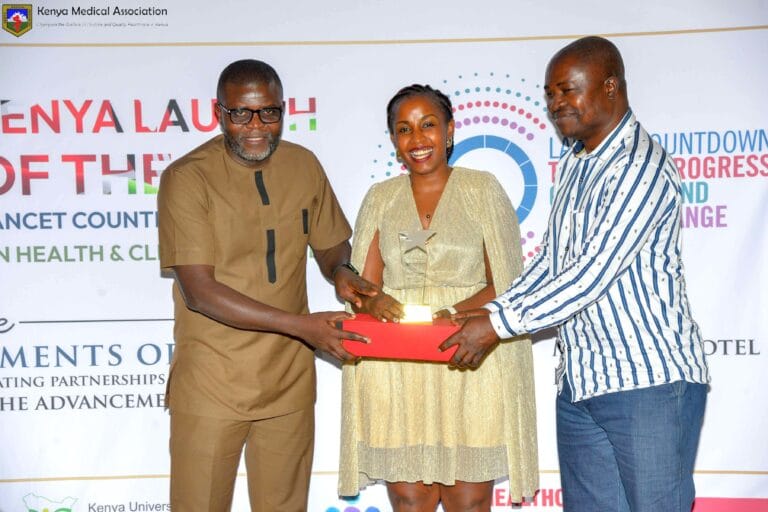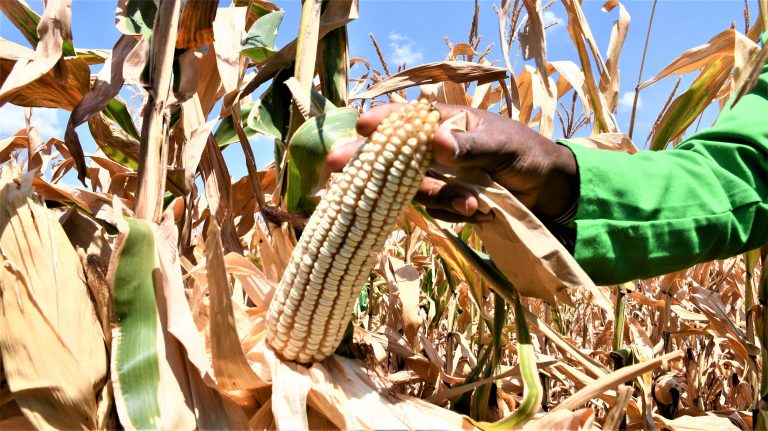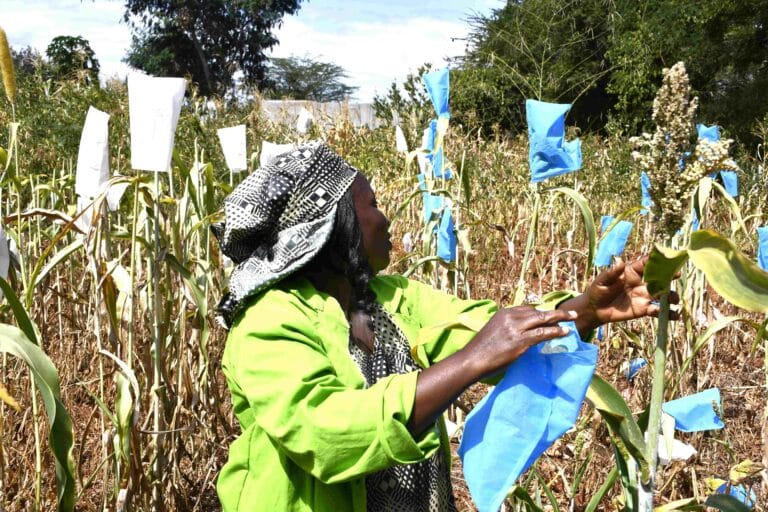By Kimuri Mwangi
Scientists have been challenged to take charge and conduct more civic education on Biotech and GMO technologies in order to let the public understand that they pose no risks to their lives.
During a church visit by the Kenya University Biotechnology Consortium (KUBICO), Pastor Nathan Lihanda, the Deputy General Superintendent of Friends Church Nairobi, said that initially they had been made to understand that GMO food is cancerous and causes other life threatening diseases. He added that after being educated about the modern technologies, he understood that that was not the truth.
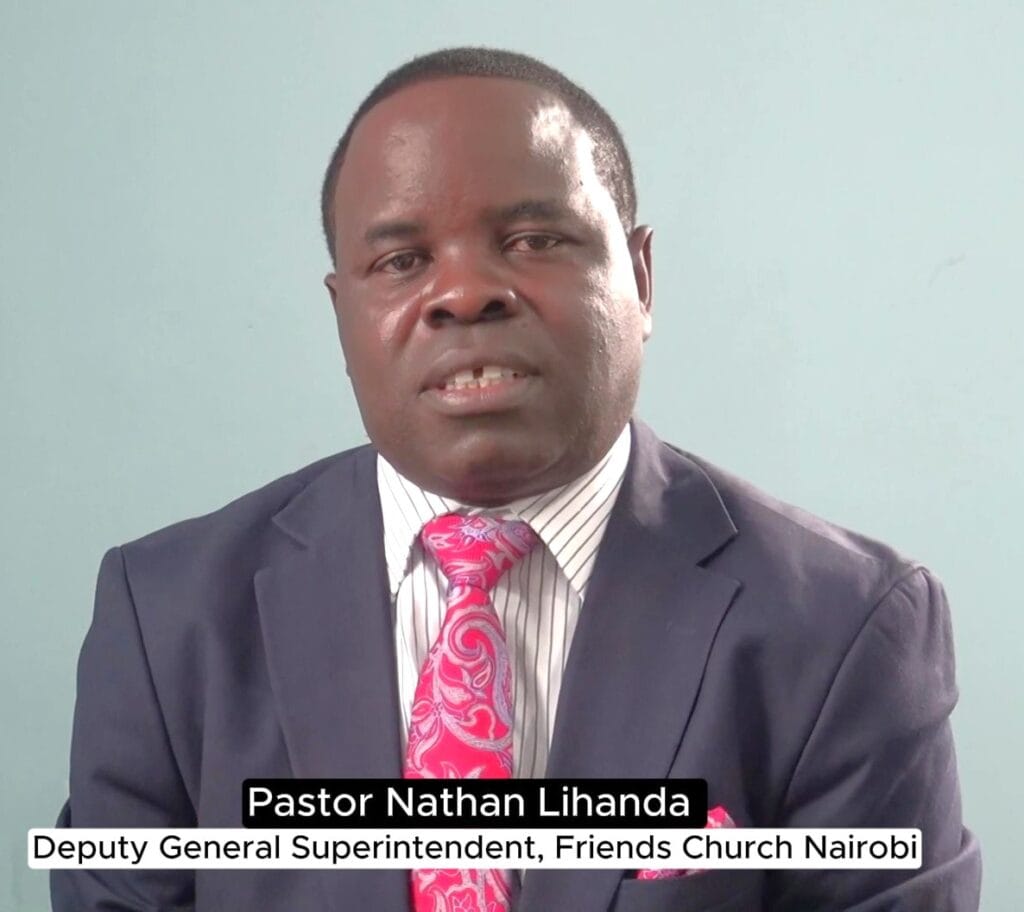
“I think the researchers should lead this process, unlike where the politicians are leading the process. In Kenya right now, nobody believes what the politicians says. You can see politicians are being given names that shows that people have no faith in them. So I think if we can allow the scientists themselves to come out and carry out exactly what their research was all about and what is going to do to help Kenyans, that to me will be better,” said Pastor Lihanda.
The cleric added that they now understood that it is a science-led process of improving production, by enhancing yields, protecting against disease and pests, and improving desirable traits saying “if the safety of this food is guaranteed by a properly genuine led process, I think the church is also very ready and willing to be used as a vessel to educate the masses about the safety of these foods.”
Collins Kikame, a youth leader at Friends Church Kayole, said that have been made to believe that GMO, is something that can bring havoc to their lives but now he recommends it as a way to achieve food security in the country.
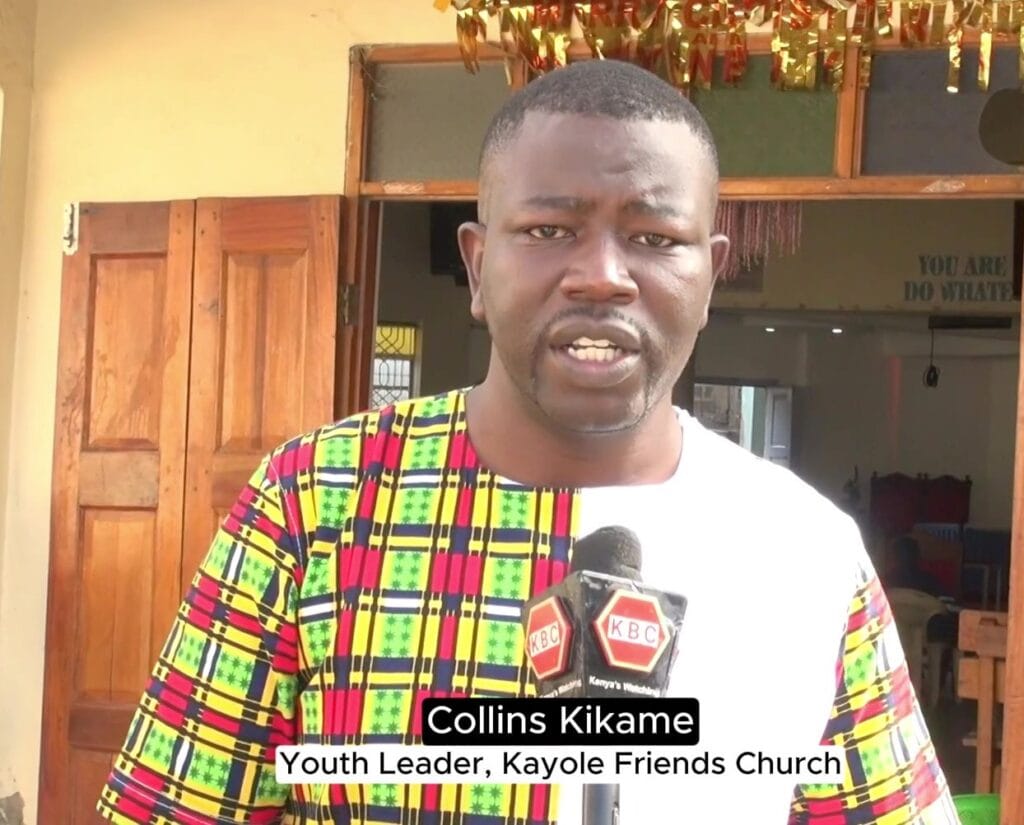
The Kenya University Biotechnology Consortium (KUBICO) Secretary General Dr. Joel Ochieng during the visit said that they are going around the country, sensitising the communities, the farming communities and also consumers on what regulatory systems are being put in place to assure their safety and the benefits that we have on some of the crops that have been modified.
He added that in Kenya, the key one that is meant for Kenya and ready for cultivation, is Bt maize, which has been modified to withstand pests like the stem borer and the fall armyworm. The National Biosafety Authority (NBA) is conducting scientific review of the application and collecting public views on the environmental release of the Bt maize.
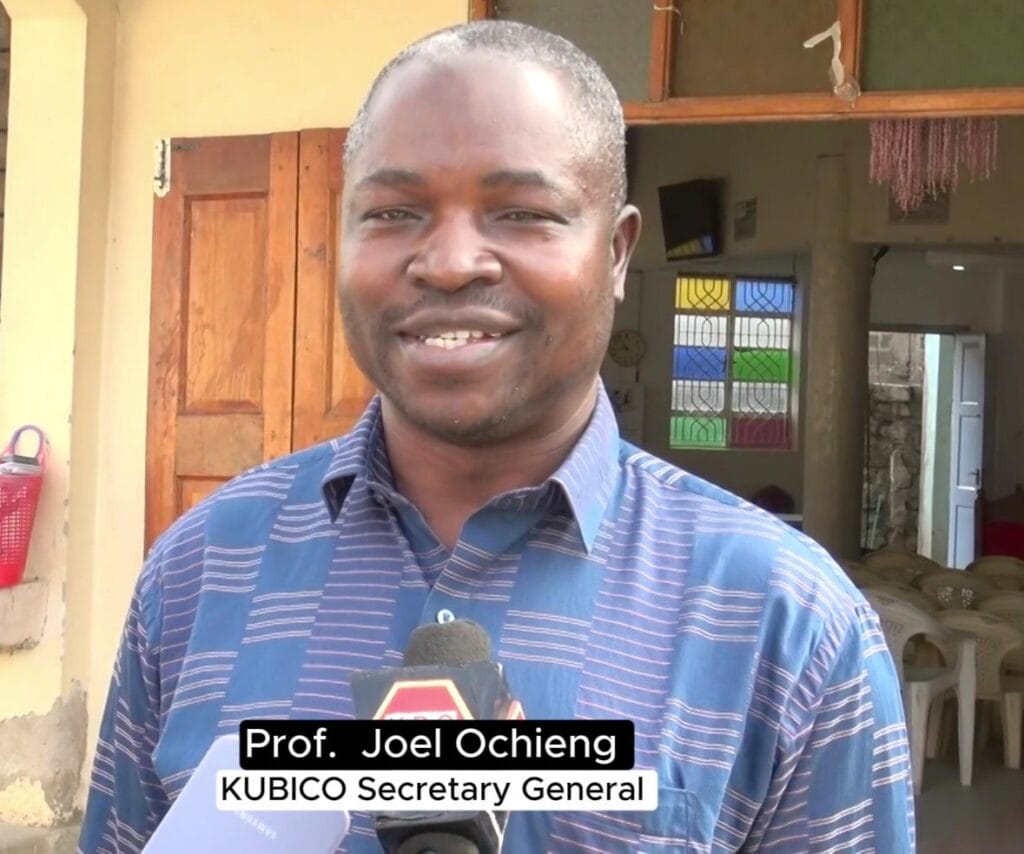
“What we are telling Kenyans is that we have adequate regulatory systems in place and they should not fear. The purpose for this modification is to improve harvests. This is being done within a very clear law and regulatory systems that are being put in place. There is adequate capacity in Kenya to regulate and to modify these crops in a way that they don’t harm anybody but then they can improve our production. If you look at the food security situation in Kenya today, we need to be careful in opposing things just for the sake of it. Let’s talk about genuine fears but let’s leave politics out of it. This is about food production that is meant to feed Kenyans and to make each of us be sufficient,” opined Dr. Ochieng, who leads the Agricultural Biotechnology Programme at the University of Nairobi. He said his team of scholars and the church will formalize the partnership and draw a roadmap for public sensitization in the coming weeks.
Last month, leaders of Pentecostal and Evangelical Churches of Kenya threw their weight behind the research and products being developed by KUBICO and partners. The leaders, led by National Chairman Reverend Fredrick Ngugi and Bishop John Chere of Githunguri, the clergy said the public seminars conducted by the Consortium experts have allayed the fears that most of their members had on GMO.
Endorsement by the various church leaders is coming after the High Court in November this year, dismissed several petitions challenging the lifting of the ban on genetically modified organisms (GMO). This was after the cabinet decision in 2022 to lift the ten year ban on GMO, attracting several litigations amid fears that such foodstuffs could be harmful to both human and animals. The petitioners, through Applicant Paul Mwangi, had moved to the Court of Appeal challenging the ruling of Judge Lawrence Mugambi, in which they list the Attorney General, Kenya University Biotechnology Consortium, and Biodiversity and Biosafety Association of Kenya.



